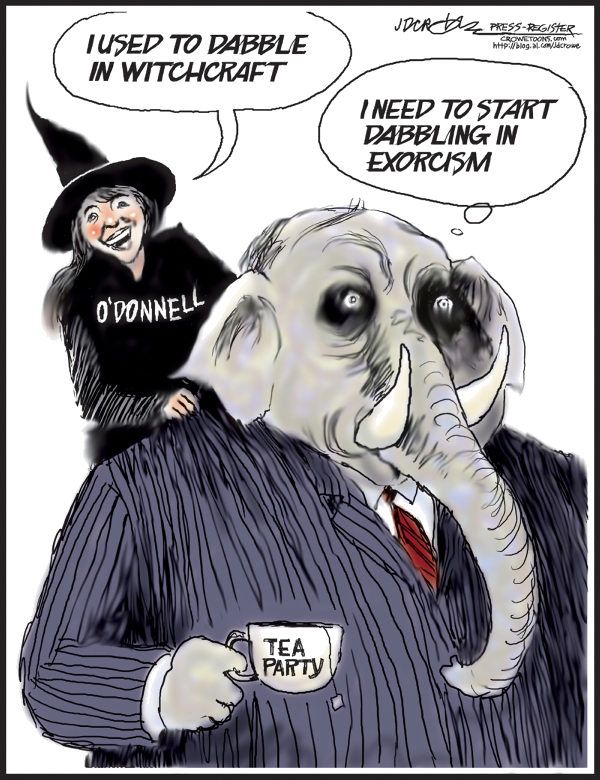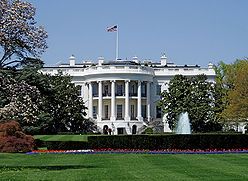Atrios and some other people have been collecting a few links, the most recent of which are gratifyingly starting to realize the gravity of systemic Title Fraud to home owners everywhere.
Since almost everyone else does I’ll start off with the 5 part Rortybomb series-
This piece from Salon references some of the Rortybomb coverage (another piece by John Carney is frequently cited as a one piece introduction)-
Obama’s foreclosure nightmare
By Andrew Leonard, Salon.com, Tuesday, Oct 12, 2010 13:45 ET
But the key facts are these: In the process of making mortgage loans, transferring ownership of those loans, slicing and dicing them into securities and, finally, initiating foreclosure proceedings on loans in default, banks, lenders and mortgage servicers engaged in illegal activity on a large scale. The legally mandated procedures put into place to ensure that no errors are ever made with respect to the transfer of property simply weren’t followed. Key documents necessary to prove ownership — to prove that a bank, for example, has the legal right to begin foreclosure proceedings, cannot be located and may not even exist.
Whether you want to dismiss this debacle as a concatenation of paperwork errors made while seeking economies of scale, or out-and-out calculated fraud by the mortgage industry against homeowners, is in some ways an irrelevant game of semantics. When legally mandated procedures aren’t followed, courts get upset, investors start wondering if they’ve been sold a bill of goods, and the litigation floodgates fly open. Bank of America and GMAC and other lenders have declared their own foreclosure moratoriums because they have suddenly realized that they are looking at potentially devastating legal liabilities.
Progressives can be excused for feeling an almost unlimited sense of schadenfreude at the suddenly scrambling banks. For many people, on the left and right, there would be nothing more pleasurable than the sight of, say, Citigroup, bankrupted by a sea of mortgage-related lawsuits. It is also of course enormously important to take advantage of this opportunity to completely rethink the government’s approach to the foreclosure crisis, and find a way to keep people in their homes with mortgages that are more appropriate to their current financial wherewithal. By itself, however, a national foreclosure moratorium isn’t going achieve that — it will just postpone resolution of the problem, and in the process conceivably create some dangerous new risks.
And here’s where Obama’s problem lies. The foreclosure crisis isn’t just about banks playing fast and loose with people’s homes. The recklessness with which banks and mortgage servicers handled their business has thrown into question the entire architecture of securities assembled from mortgages. All that toxic waste just turned a Hungarian sludge shade of bright flashing orange. If and when the owners of those securities start their own legal actions or demand that the issuers of the securities take them back, the biggest financial institutions in the United States will once again teeter on the brink — and threaten to bring all the rest of us down with them. There are systemic risk implications to this “paperwork” lollapalooza.
…
My guess is that the White House economic brain trust is fully aware of how bad this could get, and that their caution on endorsing a national foreclosure moratorium is connected to the uncertainty as to what the systemic implications of bringing the entire mortgage industry to a screeching halt might be. That’s fine, but it’s not enough. If Wall Street is once again teetering on the brink, then the Obama administration has leverage — leverage to make a deal that keeps Americans in their homes, defuses the foreclosure pandemic and ensures that the interests of average citizens are protected, along with the integrity (such as it is) of the larger financial system. Any kind of solution that attempts to address the gaping legal hole at the heart of the foreclosure mess must be paired with relief for distressed homeowners. It’s that simple.
Here’s a CNBC piece you may have missed-
Foreclosure Fraud: It’s Worse Than You Think
By: Diana Olick, CNBC Real Estate Reporter, Published: Tuesday, 12 Oct 2010 | 1:14 PM ET
A source of mine pointed me to a recent conference call Citigroup had with investors/clients. It featured Adam Levitin, a Georgetown University Law professor who specializes in, among many other financial regulatory issues, mortgage finance. Levitin says the documentation problems involved in the mortgage mess have the potential “to cloud title on not just foreclosed mortgages but on performing mortgages.”
And one from AP-
Robo-signers: Mortgage experience not necessary
Banks hired hair stylists, teens to process foreclosure documents, workers’ testimony shows
Michelle Conlin, AP Real Estate Writer, Tuesday October 12, 2010, 9:21 pm
NEW YORK (AP) — In an effort to rush through thousands of home foreclosures since 2007, financial institutions and their mortgage servicing departments hired hair stylists, Walmart floor workers and people who had worked on assembly lines and installed them in “foreclosure expert” jobs with no formal training, a Florida lawyer says.
In depositions released Tuesday, many of those workers testified that they barely knew what a mortgage was. Some couldn’t define the word “affidavit.” Others didn’t know what a complaint was, or even what was meant by personal property. Most troubling, several said they knew they were lying when they signed the foreclosure affidavits and that they agreed with the defense lawyers’ accusations about document fraud.
…
Though some have chalked up the foreclosure debacle to an overblown case of paperwork bungling, the underlying legal issues are far more serious. Yes, swearing that you’ve reviewed documents you’ve never seen is a legal offense. But at the center of the foreclosure scandal looms something much larger: the question of who actually owns the loans and who has the right to foreclose upon them. The paperwork issues being raised by lawyers and attorneys generals have the potential to blight not just the titles of foreclosed properties but also those belonging to homeowners who have never missed a mortgage payment.



Recent Comments